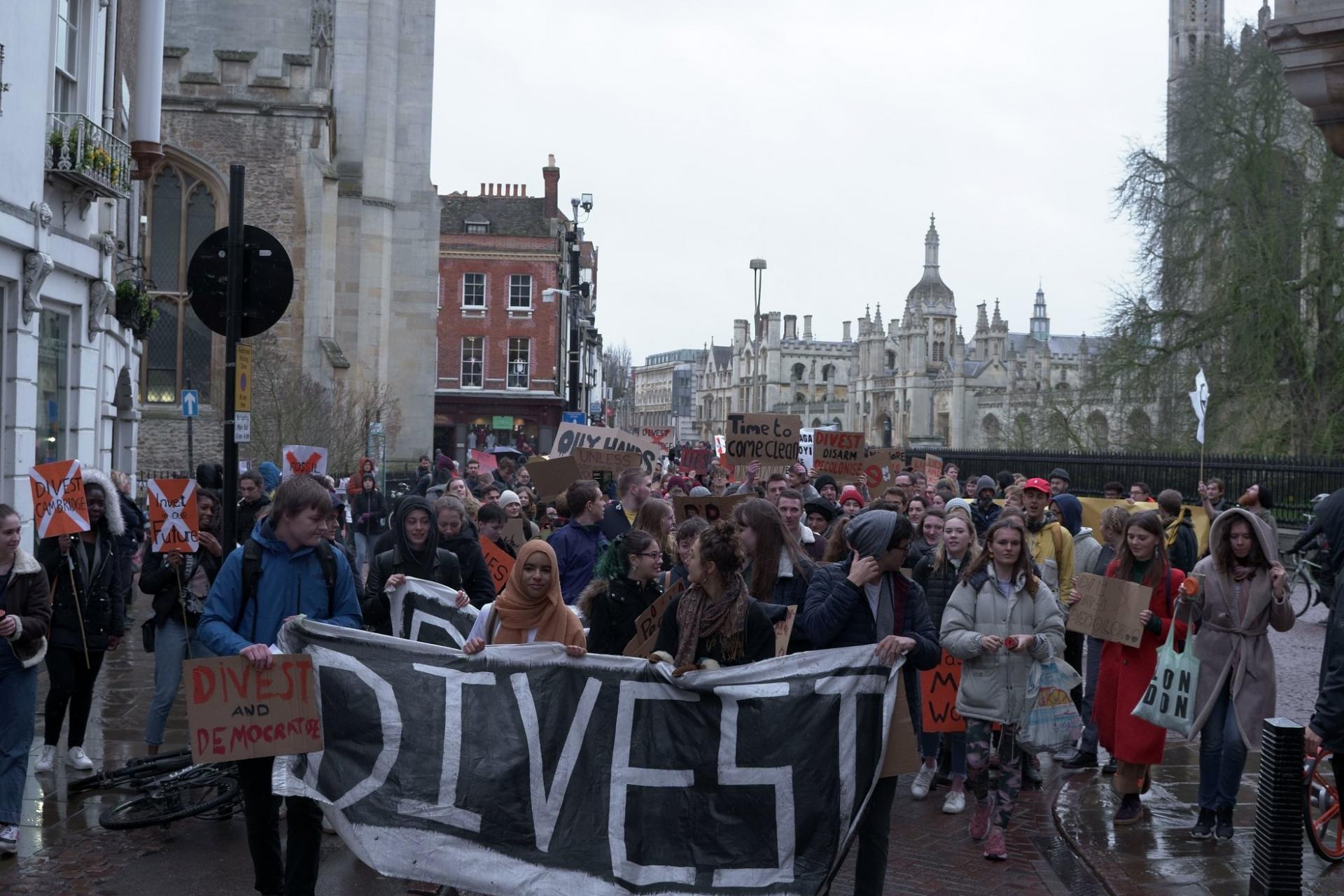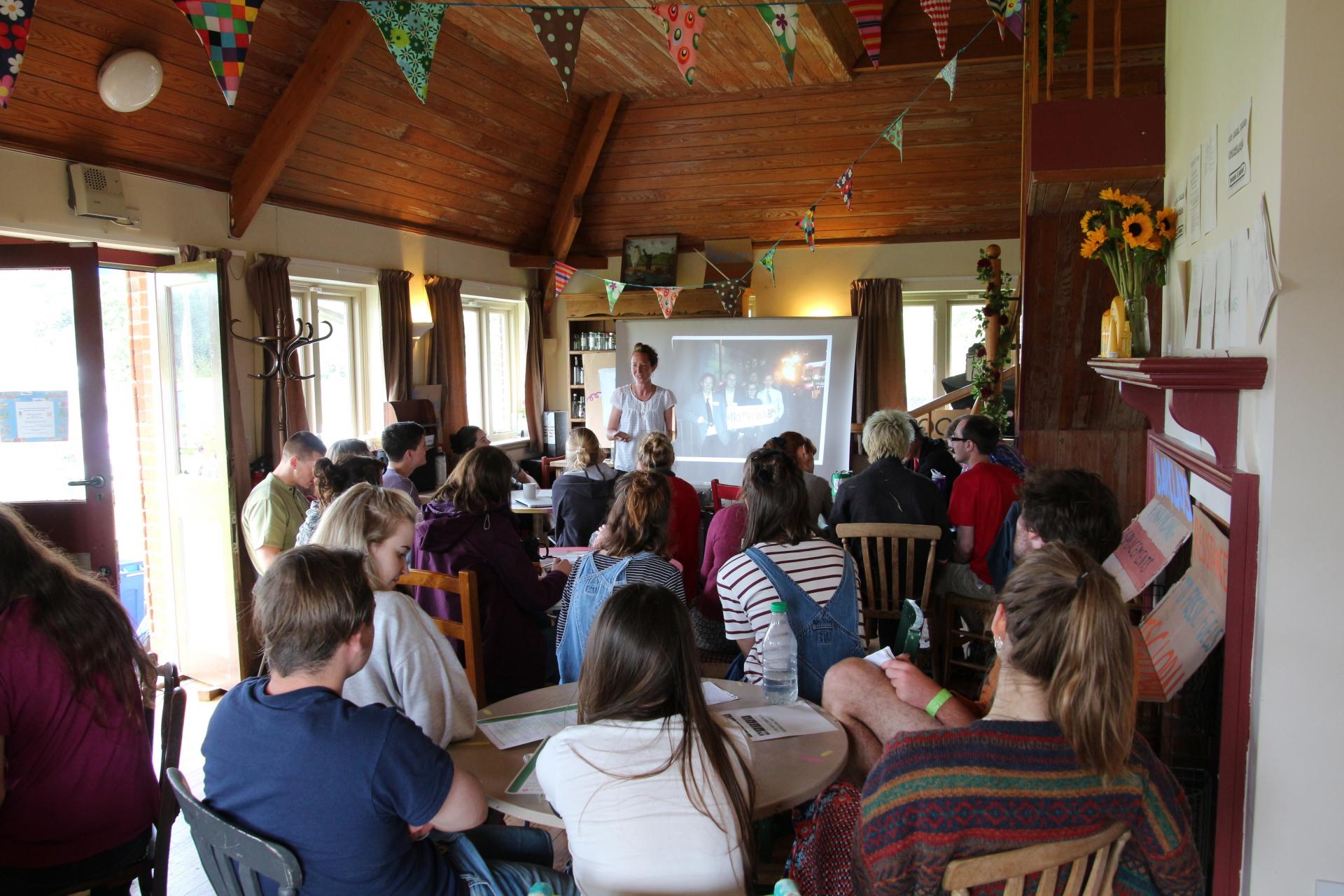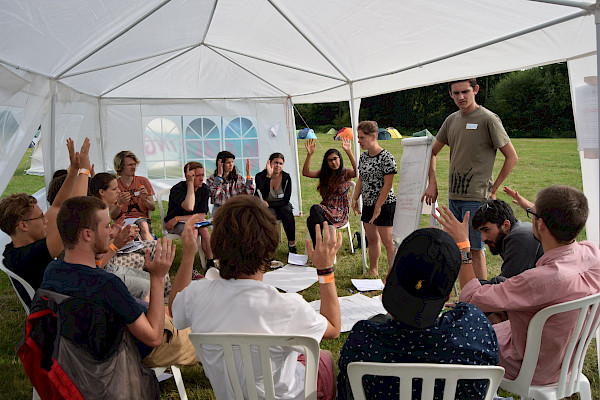For any campaign to be sustainable over time, campaigners must be able to transfer knowledge from older or more ‘experienced’ members to newer and incoming members. As campaign members frequently shift and change, important knowledge and strategies can fade out if they are not passed on. Universities rely on a high turnover of students within campaigns, making institutional knowledge and longer-term bargaining harder to achieve. As a result, an organised handover process allows campaigns to retain valuable knowledge and build momentum in the long-term, ensuring that the campaign continues to be as active and successful as possible.
While formal handovers are important, we have also found that working non-hierarchically has combatted knowledge and experience imbalances within the group. As Charlene Carruthers, an antiracist community organiser, writes, ‘the analogy of passing the torch, while popular, isn’t useful...folks should not have to ask for permission to organise with their own people. Waiting for permission to take action and lead serves only those who wish to maintain power over people’. We suggest that non-hierarchical organising thus welcomes campaigners to take on roles fluidly and develop a range of skills over their time in the campaign. We’re writing largely from our own experience of campaigning with Cambridge Zero Carbon, a student-led campaign calling on the University of Cambridge to cut its ties with the fossil fuel industry (divestment and beyond), but hopefully these ideas should be easily transferable across any kind of campaign!

The handover process will undoubtedly involve transferring a range of information and skills. Handing over basic information is a good place to start: this would include things like email lists, key contacts, social media admin passwords, how often to call meetings etc. We rely heavily on our list of supportive academics across the university, for example, which has been compiled and added to over time by Zero Carbon campaigners. We keep all of this information in a centralised Google Drive that is accessible to our active members, making storing and sharing really simple — as long as the files are labelled properly and organised into folders! Having a website is also a really good idea; to archive reports written by campaigners, news coverage of major turning points in the campaign, press statements etc. This is not only useful for people external to the campaign, but for all members to gain a broader sense of the campaign’s development over time! However, running a website does require specific skills and knowledge.
This leads us onto skillshares. Handing over is about more than just providing lists and social media passwords — it’s about laying the groundwork for a sustainable campaign that continues to grow and succeed. This involves passing on skills, strategies and tactics — a process which can occur organically amongst campaigners as they work together, but can also be more formally referred to as skillsharing. This is a crucial part of handing over. You could produce written instructions for completing campaign tasks (e.g. a step-by-step guide for how to write a press release or plan a direct action), but building skillsharing into the workings of the campaign is an even more effective way to provide newer members with the experience they need to sustain and develop the campaign.
One way to do this is by hosting skillshares: these are workshops run by more experienced members to pass on knowledge and skills in a more interactive way, to share resources and spark productive conversations. Some examples of the skillshares recently hosted by Zero Carbon include workshops on climate science, press and facilitation — these were open to anyone, and attracted a range of people from across the different student campaigns. Skillsharing between different campaigns can be really productive, particularly if your struggles are interconnected and you are falling foul of the same repressive structures of uni bureaucracy!

However, while skillsharing is a relatively formal way of passing on information, passing on established knowledge and skills should also be built into the fundamental running of a campaign. In Zero Carbon, new members to the campaign are immediately ‘buddied’ with an older member who can ensure they are comfortable in meetings, taking on action points, or joining in with actions. Building continual skillsharing into the workings of the campaign can also involve making projects collaborative; ensuring that tasks aren’t always delegated solely to those with the most experience. Writing a press release, for example, could be undertaken by a combination of newer and more experienced members, so that newer campaigners can gain valuable experience with guidance available if they need it. Ideally, skillsharing should embolden and empower new members to increasingly feel as though they can take on and accomplish new tasks: speeches for rallies could be written and delivered in pairs, articles could be co-written.
This collaborative method of organising is not only useful for handovers: it can reduce the burden of responsibility on individuals and help to counteract burnout (activists suffering from overstress and exhaustion). Adopting a continual process of skillsharing — drawing new people into the campaign, sharing responsibility, working together to pass on skills and knowledge — can help to build a campaign that endures, grows and succeeds!
